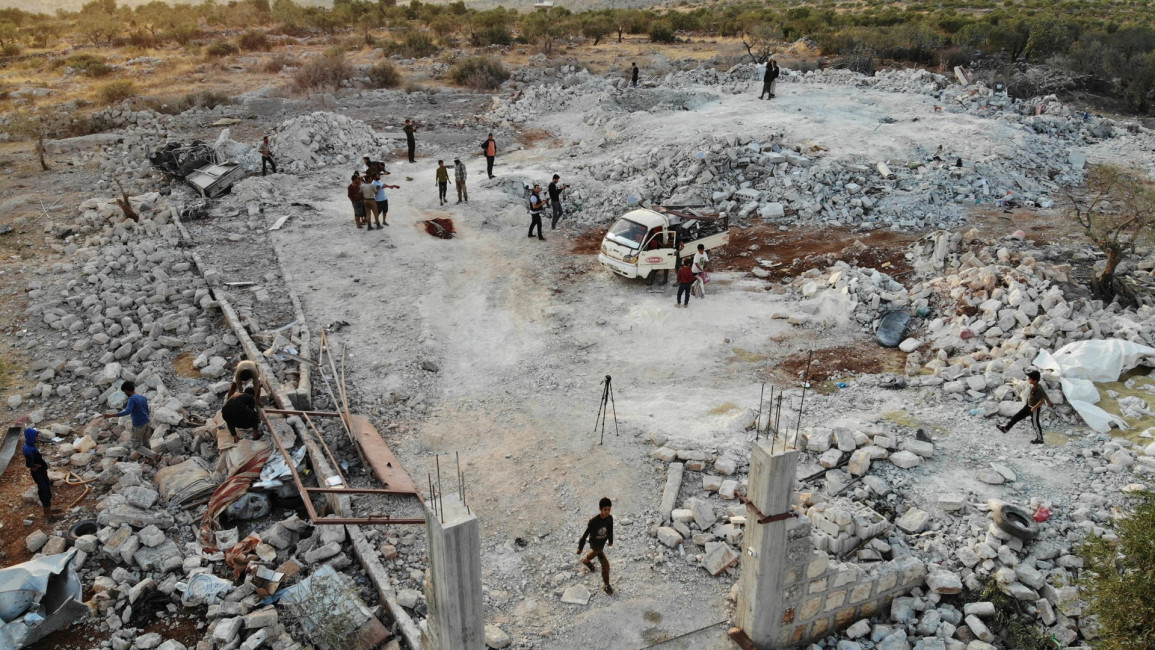Follow us on Twitter: @The_NewArab
Bodies of civilians found at site where Baghdadi died
The bodies of three women, a girl, and three men were found at the site of Islamic State group leader, Abu Bakr al-Baghdadi's death, a medical source told The New Arab's Arabic service.
The medical source said that 11 people were also injured in the US raid on Baghdadi's compound, included civilians.
The house that the self-proclaimed caliph of IS was staying in near the village of Barisha north-west of Idlib was completely destroyed in the raid and the source said that rescuers were still searching the site for survivors.
On Sunday, US President Donald Trump announced that Baghdadi "died like a dog" in the US raid, adding that the IS leader "spent his last moments in utter fear, in total panic and dread, terrified of the American forces bearing down on him".
Baghdadi reportedly committed suicide in a tunnel by blowing up an explosive vest after being cornered by US forces.
The medical source said that none of Baghdadi's personal effects and nothing related to IS was found at the site where Baghdadi died.
Twitter Post
|
Local sources told The New Arab that the house where Baghdadi was found belonged to Abu Mohammed Al-Halabi, a trader from Aleppo who bought it two years ago.
They said that Al-Halabi did not mix much with the local population but was not involved in suspicious activity.
Hurras al-Din (The Guardians of Religion), a hardline Islamist group linked to Al-Qaeda, have a presence in the area but the local people told The New Arab that Al-Halabi did not have any relationship with them.
In July, Hayat Tahrir al-Sham (HTS), a larger hardline Islamist group which dominates Idlib province, announced that Baghdadi’s bodyguard had been killed in a clash with its forces.
Some analysts speculated that HTS could have had a role in the IS leader's death, saying that no one could have entered northwestern Idlib province without its knowledge and that it had previously tried to capture Baghdadi in the town of Saramein in eastern Idlib province.

![The brutal assault on Khan Younis has killed dozens and displaced thousands more [Getty]](/sites/default/files/styles/image_330x185/public/2024-07/GettyImages-2162526709.jpg?h=d3eda8cf&itok=n5N-o8p5)
![Members of the Algerian delegation threw roses into the Seine [Getty]](/sites/default/files/styles/image_330x185/public/2024-07/GettyImages-2162980872.jpg?h=199d8c1f&itok=h_3o_TOL)
